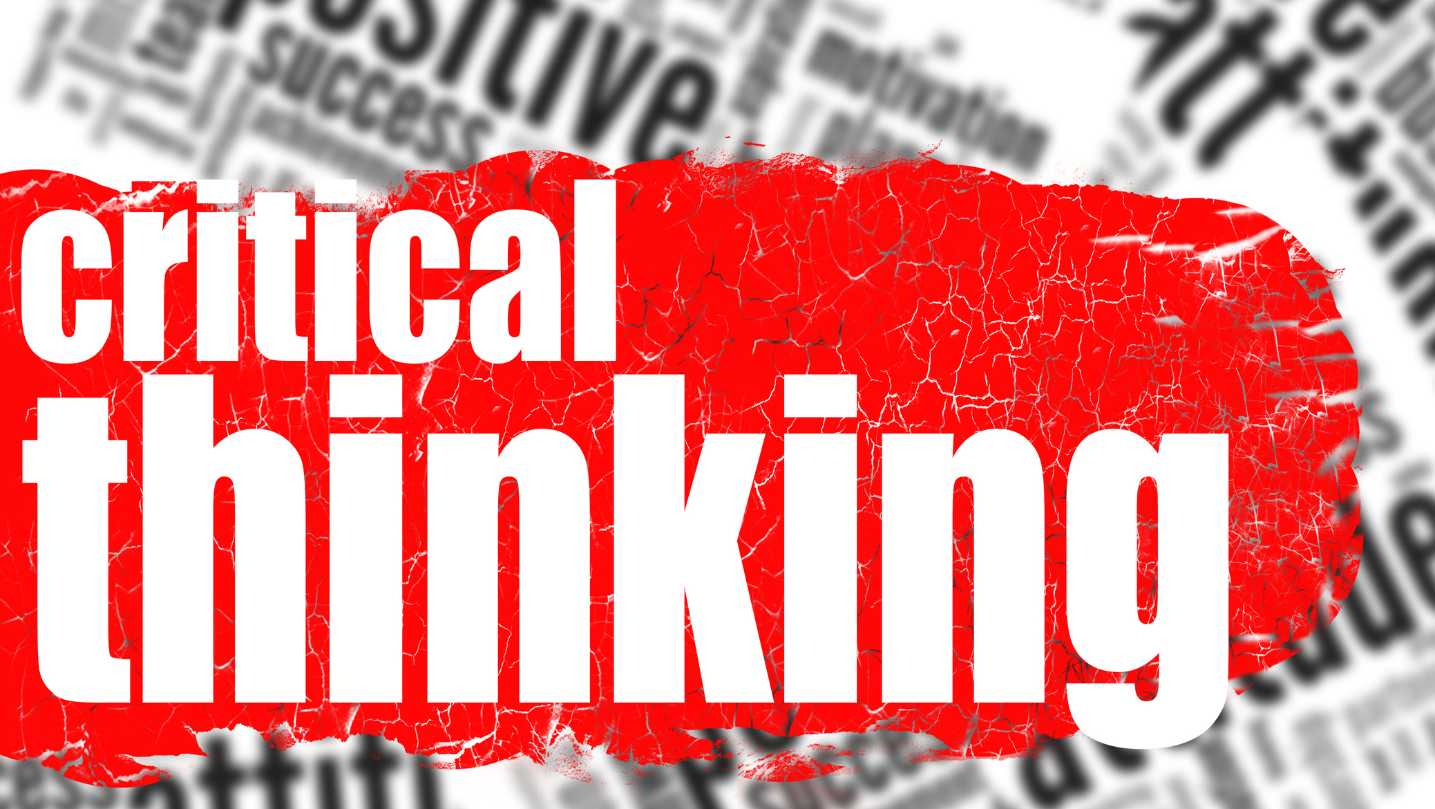In a world flooded with information, cultivating strong critical thinking skills has become more vital than ever. The ability to analyze, assess, and make well-reasoned decisions is not only an asset but a necessity. This article delves into the realm of critical thinking, exploring its definition, significance, and practical methods to refine this cognitive skill.
What Is Critical Thinking?
Critical thinking is the art of objectively analyzing, evaluating, and synthesizing information to form reasoned judgments and make informed decisions. It involves being open-minded, rational, and systematic in processing data from various sources.
Why Critical Thinking Matters
Critical thinking serves as a compass guiding us through complex situations. It empowers individuals to decipher between credible and misleading information, fostering a more profound understanding of the world.
Employers highly seek after this skill, as it leads to innovative problem-solving and effective communication.
How to Improve Your Critical Thinking Skills

Enhancing your critical thinking abilities requires conscious effort and practice. Here are several techniques to help you sharpen your cognitive edge:
1. Embrace Curiosity
Curiosity fuels critical thinking. Ask questions, seek diverse perspectives, and dig deeper into subjects that pique your interest. The more you inquire, the more expansive your thinking becomes.
2. Analyze Assumptions
Uncover underlying assumptions in arguments and ideas. Assess whether these assumptions are valid and how they influence conclusions. This approach promotes deeper insight into different viewpoints.
3. Develop Decision-Making Frameworks
Craft decision-making frameworks that involve considering pros and cons, risks and benefits, and short-term versus long-term consequences. Such frameworks streamline your thought process.
4. Practice Active Listening
Listen attentively to others and refrain from jumping to conclusions. Absorb their perspectives and critically evaluate their ideas before forming opinions.
5. Read Widely
Expose yourself to diverse sources of information, including varying viewpoints and genres. This widens your knowledge base and enhances your ability to assess different arguments.
6. Reflect on Your Thinking
Regularly assess your thought processes. Are you relying on biases? Are you using sound reasoning? Self-reflection enables continuous improvement.
7. Develop Problem-Solving Techniques
Problem-solving is a cornerstone of critical thinking. Tackle challenges systematically by identifying the issue, brainstorming solutions, evaluating each option, and selecting the most viable course of action.
8. Embrace Diverse Perspectives
Critical thinking involves considering various viewpoints. Engage with individuals who have different opinions, as this broadens your understanding and encourages you to think beyond your comfort zone.
9. Refine Your Communication Skills
Effective communication is essential for conveying your thoughts and ideas. Mastering communication enhances your ability to articulate your critical thinking process to others.
10. Seek Continuous Learning
Learning is a lifelong journey. Continuously expose yourself to new ideas, subjects, and experiences to expand your knowledge base and foster critical thinking growth.
11. Utilize Technology Wisely
While technology offers convenience, it’s crucial to evaluate information critically. Differentiate between credible sources and misinformation, and use technology as a tool to enhance your critical thinking rather than replace it.
Common Barriers to Critical Thinking

Several obstacles can hinder the development of effective critical thinking skills. These barriers include:
1. Confirmation Bias
People tend to seek out information that aligns with their existing beliefs, leading to a narrow perspective.
2. Emotional Influences
Strong emotions can cloud judgment and lead to irrational decision-making.
3. Lack of Information
Insufficient data or incomplete information can impede the forming of accurate conclusions.
4. Peer Pressure
Conforming to the opinions of others without independent analysis can hinder critical thinking.
Applying Critical Thinking in Everyday Life

Critical thinking isn’t confined to academic or professional settings—it’s an essential tool for navigating daily life. Here are some practical applications:
1. Evaluating News
Scrutinize news sources, fact-check information, and consider multiple angles before forming opinions.
2. Problem Solving
Break down complex problems into manageable parts, assess potential solutions, and make informed decisions.
3. Enhancing Relationships
Apply critical thinking to understand others’ viewpoints, resolve conflicts, and communicate effectively.
4. Decision Making
When faced with choices, use critical thinking to weigh the pros and cons and select the most rational option.
5. Innovating at Work
Incorporate critical thinking into brainstorming sessions and strategy development to drive innovation.
Characteristics of a Critical Thinker

A critical thinker is someone who exhibits a set of distinctive traits that set them apart in their approach to problem-solving, decision-making, and understanding the world around them. Some key characteristics include:
- Analytical Mindset: Critical thinkers possess the ability to break down complex problems into smaller components, making them easier to grasp and solve.
- Curiosity: They are naturally curious individuals who never stop asking questions, seeking deeper insights, and striving for a comprehensive understanding of various subjects.
- Open-Mindedness: Being receptive to new ideas and different perspectives allows critical thinkers to broaden their horizons and avoid being trapped in narrow viewpoints.
- Logical Reasoning: These individuals excel at reasoning logically, connecting the dots between pieces of information, and arriving at conclusions based on evidence.
- Effective Communication: Critical thinkers can articulate their thoughts clearly, making it easier for them to convey their ideas to others and engage in meaningful discussions.
- Problem-Solving Acumen: They thrive in solving complex problems by approaching them systematically, considering various solutions, and selecting the most suitable one.
- Information Evaluation: Critical thinkers have a keen eye for discerning credible sources and reliable information from dubious or biased content.
- Self-Awareness: They understand their own cognitive biases and are mindful of how personal beliefs can influence their thinking.
Conclusion
Cultivating critical thinking skills is a transformative journey that empowers individuals to navigate an increasingly complex world.
By understanding its principles, acknowledging common barriers, and applying them in various spheres of life, you can enhance your cognitive abilities and make well-informed decisions.
Start your journey to sharpening your mind and developing thinking skills today.
FAQs
Can critical thinking be learned, or is it innate?
While some individuals might have a natural inclination toward critical thinking, these skills can undoubtedly be learned and developed over time through practice, exposure to diverse ideas, and a commitment to continuous learning.
What role does curiosity play in critical thinking?
Curiosity is the driving force behind critical thinking. It encourages you to explore, question, and seek new perspectives, all of which are essential components of effective critical thinking.
Are there any exercises to enhance lateral thinking?
Absolutely! Engaging in activities like mind-bending riddles, brainstorming unusual solutions to everyday problems, and exploring creative fields like art or music can help nurture your lateral thinking abilities.
Can critical thinking help in personal relationships?
Certainly. Critical thinking improves your ability to understand others, empathize, and consider their perspectives. This is immensely valuable in resolving conflicts, communicating effectively, and building strong relationships.
See Also: How to Enhance Your Performance Evaluation Process










